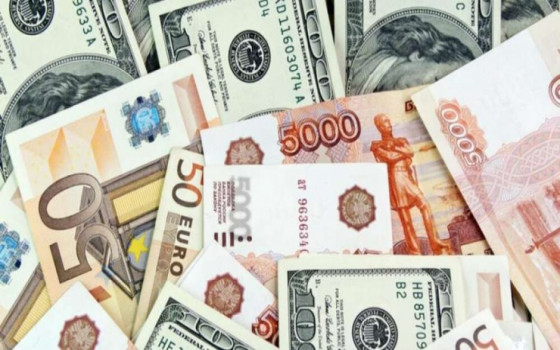
EXPORTING CORRUPTION 2022: TOP TRADING COUNTRIES DOING EVEN LESS THAN BEFORE TO STOP FOREIGN BRIBERY

- Europe and Arabs
- Tuesday , 11 October 2022 15:35 PM GMT
Brussels: Europe and the Arabs A report distributed today, Tuesday, and issued by Transparency International, which is based in Berlin, Germany, said that:
Despite a few breakthroughs, multinational companies bribing their way into foreign markets go largely unpunished, and victims’ compensation is rare
Our globalised world means companies can do business across borders – often to societies’ benefit. But what if the expensive new bridge in your city has been built by an unqualified foreign company that cuts corners? Or if your electricity bill is criminally inflated thanks to a backroom business deal? The chances of this are higher if you live in a country with high levels of government corruption.
Public officials who demand or accept bribes from foreign companies are not the only culprits of the corruption equation. Multinational companies – often headquartered in countries with low levels of public sector corruption – are equally responsible.
Twenty-five years ago, the international community agreed that trading countries have an obligation to punish companies that bribe foreign public officials to win government contracts, mining licenses and other deals – in other words, engage in foreign bribery. Yet few countries have kept up with their commitments.
Our new report, Exporting Corruption 2022, rates the performance of 47 leading global exporters, including 43 countries that are signatories to the Organisation for Economic Co-operation and Development (OECD) Anti-Bribery Convention, in cracking down on foreign bribery by companies from their countries. Four leading non-OECD Convention exporters that are also assessed include China, India, Hong Kong SAR and Singapore.
Global highlights
Transparency International has been independently tracking major trading countries’ progress in enforcing against foreign bribery since 2009. Our biennial reports score countries based on their performance at different stages of enforcement – from the number of investigations commenced and charges filed to cases concluded with sanctions – over a four-year period. We then classify them by four enforcement categories: active, moderate, limited, little or no.
The picture has been gradually getting worse since our 2018 study, hitting a new low this year.
Corrupt transnational networks of businesses and their enablers leave a trail of harm – pushing out competitors, bypassing regulations and draining public budgets of resources.
Delia Ferreira Rubio
Chair of Transparency International
Only Switzerland and the United States are now in the category of active enforcement, as Israel and the United Kingdom have dropped from active to moderate enforcement.
Major non-OECD Convention countries remain in the little to no enforcement category – including China, the world’s top exporter, and India, which still has no legislation criminalising foreign bribery. In this group of 38 countries – accounting for 55 per cent of all global exports – foreign bribery abuses go unpunished.
Since 2020, only two countries – Latvia and Peru – have moved up a level while nine – including Denmark and Italy – have dropped. The COVID-19 pandemic has undoubtedly posed a major hindrance at every stage of enforcement from investigation to prosecution, but in many countries the downward trend predates the crisis, and the current picture raises significant concerns.












No Comments Found